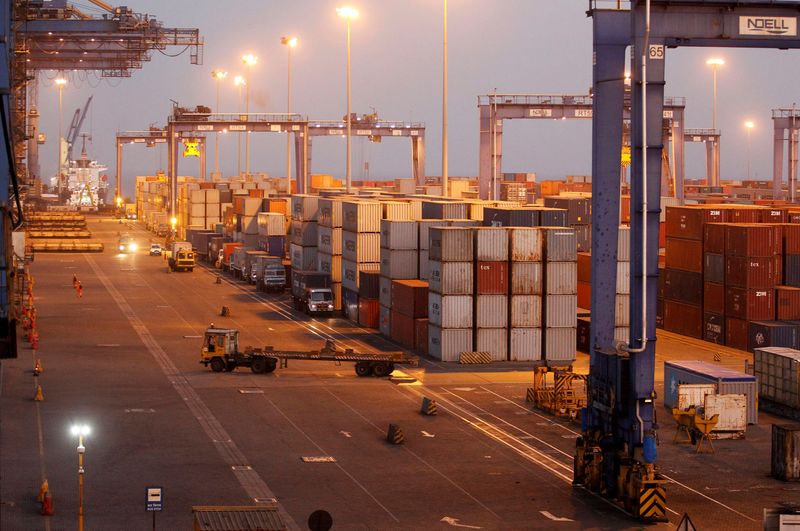By Manoj Kumar and Aftab Ahmed
NEW DELHI (Reuters) - India's merchandise exports shrank by more than one-third from a year ago, hit by a fall in global demand and shipments due to the new coronavirus, and analysts warned of a grim outlook for exports in 2020 as global economic activity collapses.
Merchandise exports fell 34.6% to $21.41 billion in March from a year earlier, while imports were down 28.7% to $31.16 billion during the same period, a trade ministry statement said on Wednesday.
Oil imports, the biggest item in the import bill, fell 15% to $10.01 billion, helped by fall in global crude oil prices and slowdown in domestic demand.
India meets nearly 80 percent of its fuel demand from imports.
Overall in March, India's trade deficit marginally declined to $9.76 billion from $9.85 billion in the previous month.
Shipments of Indian goods have been hit by the shutdown of factories and cancellation of orders as the infection spread and amid a national lockdown imposed by the government late last month to try to combat the outbreak.
On Tuesday, Prime Minister Narendra Modi announced the extension of the 21-day lockdown until May 3, while promising to allow some economic activities from next week.
The ministry does not issue separate data for trade in services. That is issued in about a month's time by the Reserve Bank of India.
However, the ministry did issue estimates for goods and services trade in the year to March 31, based on the full-year merchandise trade figures and the first 11 months of services trade.
Total exports of goods and services were estimated at $528.45 billion in the financial year, down 1.76% from a year earlier, compared with estimated imports of $598.61 billion, down 6.33%, the statement said.
Economists said a much-feared global recession and a fall in global trade will further hit Indian exports in 2020 while a slowdown in domestic demand will impact imports.

The International Monetary Fund, in a new global outlook, said the world economy is expected to contract by 3% in 2020 as the pandemic causes nations around the world to close down, compared with a contraction of 0.1% in 2009, the worst year of the previous recession.